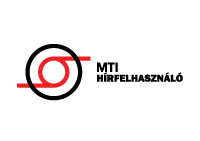It foresees a greater role in the Balaton Tihany limnological research institute new leader
positioned in Tihany Balaton Limnology Institute (BLI) over the renewal of Balaton research that can operate more significant resources than ever expected to - said Francis Jordan, the director of the institution, appointed in April to MTI. The BLI to the Ecological Research Center (WC) is one of the research base, which was recently the Hungarian Academy of Sciences of the Eötvös Loránd Research Network (ELKH).
The director said that in addition to the Tihany institution, ÖK, which also includes three additional research bases, managed about 700 million forints this year, but in the future it is expected to be one and a half to two times a year, and a one-time injection of 22 billion forints by the government .
He also reported that the management of ÖK had been renewed in recent months, and thanks to the new approach and conditions, he had already invited several young talents home from abroad. A new president was also appointed to the head of the ELKH in the summer, the strategy changed, which is also favorable for the research base in Tihany, since Balaton research needs not only innovation, but also significantly developing basic research, he said.
According to the director who returned from Italy, the Tihany institution needs a huge change in the quality and composition of researchers, infrastructure and research strategy. "It is necessary to switch to international-level research at Lake Balaton, which is suitable for receiving EU funds," he added.
Researchers are still only speculating about the reasons for Lake Balaton's algal bloom at the end of summer, which the head of the BLI said as much about; "we don't necessarily experience it as a failure, but rather as a sobering slap, which makes it clear to the decision-makers that more needs to be spent on research".
BLI has about 80 employees, about half of whom are researchers. "The number of researchers is constantly and dynamically changing, young people, doctoral students, foreign researchers are also arriving, Hungarians living abroad are returning home," said the director, who said that 200 researchers would be needed to thoroughly understand the processes of Central Europe's largest lake. They try to cover the most important research areas, but the institute would also need a bioinformatician, sociologist or microbiologist.
 The most important thing is to build a monitoring network of international standard according to international standards as soon as possible on Lake Balaton, Kis-Balaton and the estuaries of the lake. “Without it, we’re still groping in the dark when something happens. Nor should it be forgotten that a proper monitoring activity is at least as necessary not only for research but also for the provision of information for other purposes, ”he said. If that happens, it will still take years for scientifically based conclusions to be drawn from the data, he added.
The most important thing is to build a monitoring network of international standard according to international standards as soon as possible on Lake Balaton, Kis-Balaton and the estuaries of the lake. “Without it, we’re still groping in the dark when something happens. Nor should it be forgotten that a proper monitoring activity is at least as necessary not only for research but also for the provision of information for other purposes, ”he said. If that happens, it will still take years for scientifically based conclusions to be drawn from the data, he added.
560 total views, 1 today
560 total views, 1 today










